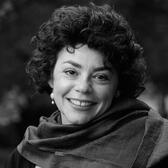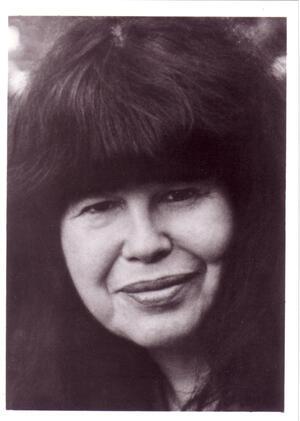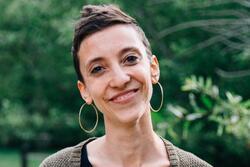Q & A with Poet Marge Piercy
JWA: Tell us about your latest book of poetry, On The Way Out, Turn Off The Light
Marge Piercy: My most recent poetry collection was published at the height of COVID. No one was in the [publisher's] office. The copy editor disappeared to LA, my editor went to her family farm in South Carolina and was hard to reach. No books were sent out, no reviews happened, and of course [there were] no bookstore readings. I consider it one of my best collections, but it landed with a thud during COVID.
The book I am polishing now contains many poems, but it is a work I discovered while writing [in] the Japanese form of zuihitsu. It’s a chronological narrative of the first year of my second life after I died [of a heart condition] and was revived by the rescue squad. I am grateful to the fire department for saving my life. After getting a pacemaker, I wrote this book of narratives, poems, little essays, and an occasional list and recipe. This book is, in many ways, my legacy.
JWA: How can we—as women, as Jews, and as artists— speak out against the violations of human rights and the environmental damage that is being committed in this country and around the world?
MP: We write about it, but that isn’t enough. We’re citizens as well as writers, and we have the same obligation to act as everyone else. You simply have to choose what to work on according to what moves you the most—climate change, reproductive rights, refugees, immigrants, pure water and air, animal rights, Israel, affordable housing, homelessness, hunger—you pick it out as your mind and heart dictate. But you are obligated to act. I can no longer march at 88, but when I could, I did. I have also given benefits for causes that move me. I read for the Herring River Project last spring. I do annual tithing, give throughout the year, and then total up what I’ve given by late December and donate whatever brings it up to the proper tithing amount.
This is a time of a revival of this kind of open, blatant antisemitism I grew up enduring. I am proceeding with a public presence as a Jew—I refuse to hide or dissemble. I am a Jew and that is a strong part of my identity. However much I may disagree with Netanyahu’s policies, I will support the existence of Israel and practice my religion openly.
JWA: What advice do you have for activists right now?
MP: As I wrote above, you have to choose the goals you feel most strongly and passionately about. You can’t make a person get excited about an issue that excites you. Maybe you can reach them, but it’s better to find out what that person feels most strongly about. It also works better if you join or start a group because you will egg each other on and share ideas.
JWA: How can we care for each other and ourselves at such a difficult time?
MP: The way people have always cared for each other: by listening as well as sharing, by caring, frankly, just caring about others and trusting yourself. Also understanding that you can get burned out and need some healing, quiet, pleasant time. You always need to listen to your body. You have to understand and respect that others may have different priorities than you do.
Above all, control impatience, both with yourself and with others. In any progressive attempt, it’s two steps forward and one-and-a-half steps back. Understand you are fighting power and powerful people, and they will not easily relinquish one iota of their power and influence and wealth. As activists, you have to maintain a balanced life. You can’t become a fanatic, or you will burn out.
JWA: What inspires you? Which women have inspired you?
Marge Piercy: Being alive in a place I love on our land with my beloved Woody, dear friends, and three wonderful, loving, cats. Writing, reading, listening to music, cooking good meals and eating them. Watching the wild ones who live around us.
I began writing poetry seriously in high school, and my influences were Walt Whitman and Emily Dickinson. Simone de Beauvoir inspired me by writing honestly about women’s lives in a broader social-political context. This is what I wanted to do. I was influenced by Doris Lessing’s Golden Notebook, but not her later works.
JWA: What are you most proud of?
MP: I guess surviving to 88 so far, after dying. I never thought I would live that long. My mother said my palm indicated I would die between 38 and 42.
I am proud of the work I’ve done. I’m proud of all the organizing and protesting I did. I can do much less now, of course.
JWA: What advice do you have for living a creative life?
MP: Put writing first. Don’t take a university job; it drains you and you don’t get to know a wide variety of people. The more you work outside the university, the more you learn about what most people’s lives are like.
It’s best to have a job that puts you in contact with many other people and that doesn’t require writing in and of itself.








Thanks for this fine and lovely interview, where Ms Piercy has made some very wise and timely points, and she just is a great author! Of course i love her science fiction writing. Live long and prosper, Ms Piercy!